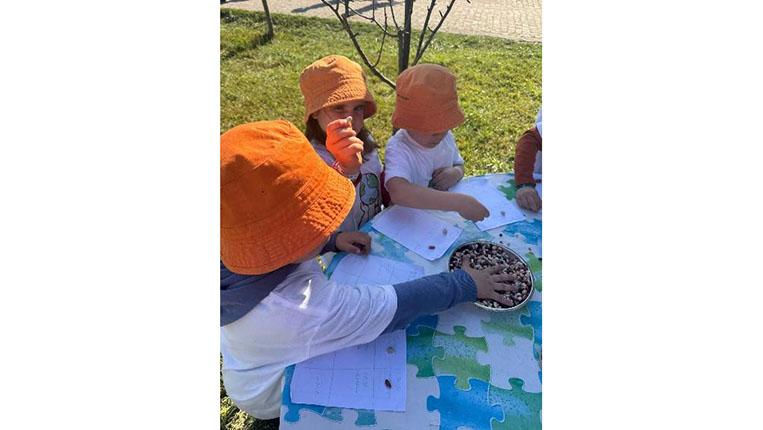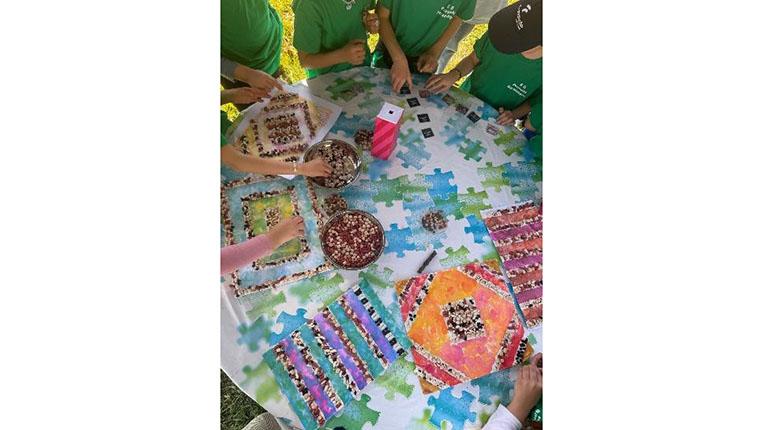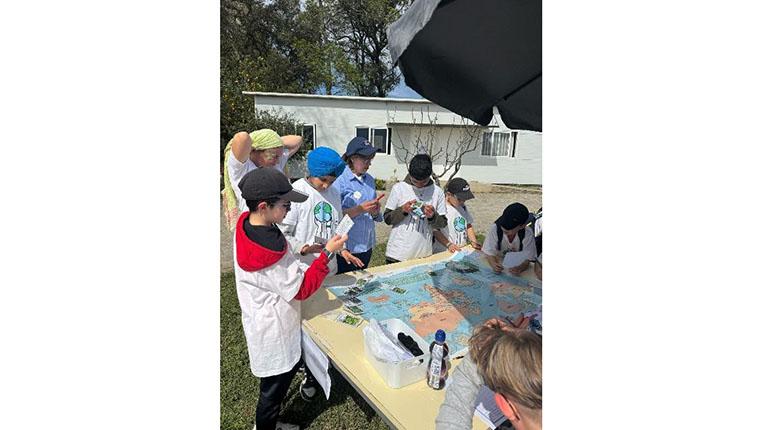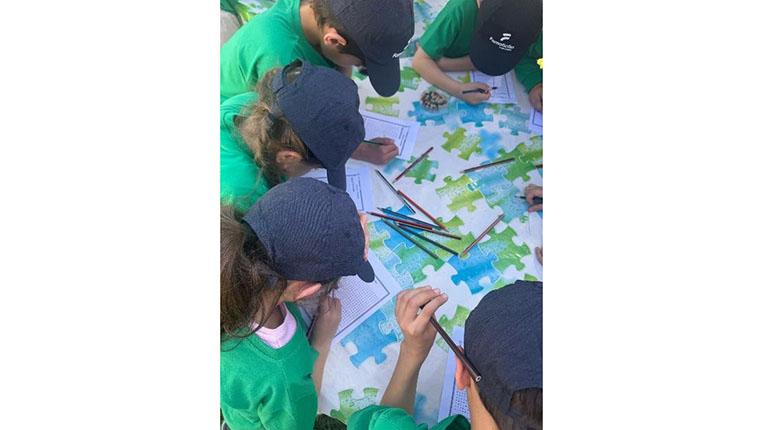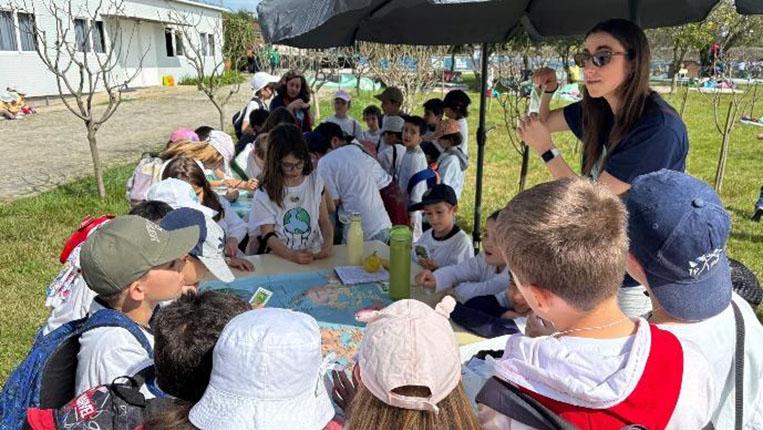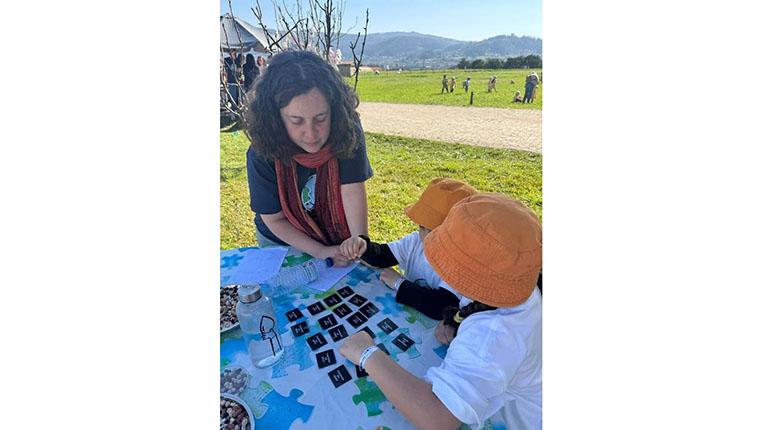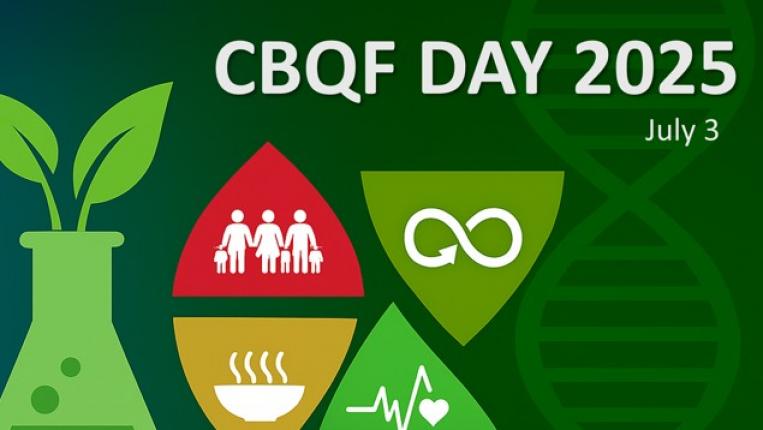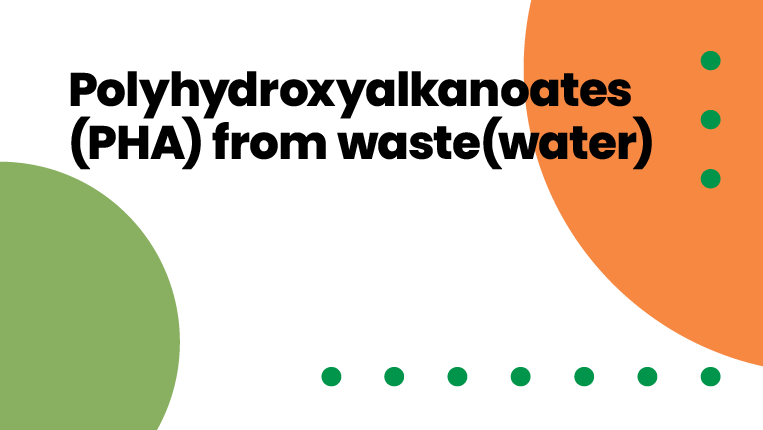This past Friday, March 28th, two representatives from the UCP Plant Nutrition and Biotechnology research group attended the 3rd Municipal Eco-School meeting in Vila Nova de Famalicão. The event, held at the pedagogical farm of the Neighbourhood Social Centre in Quinta do Bairro, provided a platform for schools to share and celebrate their sustainability initiatives under the Eco-Schools programme, developed in Portugal by the Blue Flag Association for the Environment and Education.
The Eco-Schools programme supports schools in implementing Environmental Education for Sustainability, with a focus on connecting education, community, and sustainability (https://ecoescolas.abaae.pt/sobre/quem-somos/). This year’s meeting, spearheaded by Prof. Carolina, welcomed 79 schools and 1,500 children to participate in a diverse array of educational workshops centred on waste management, renewable energy, animal welfare, healthy eating, and agriculture.
UCP’s participation in the event built upon previous collaborations with the Social Centre through the INCREASE project (https://www.pulsesincrease.eu/). As part of their contribution, the UCP team—Anissa Davel, Harsimran Kaur, and Teresa Lima —designed a series of engaging, hands-on activities aligned with the themes of the LegumES (https://legumesproject.eu/) and COUSIN projects (https://cousinproject.eu/). These activities aimed to bring legumes into arts and crafts, and educate children about legumes including their identification, their benefits, and their environmental significance.
Interactive Legume-Based Activities
- Legume Map Game: This activity expanded children’s knowledge of legumes from around the world, emphasizing their diverse roles in ecosystems and human culture. Children read information cards, placed them on a world map based on the legume’s origin, and then matched petri-dishes of seeds to the correct legume. A key component of this activity was the introduction of basic concepts of ecosystem services—showing children how plants like legumes contribute to soil health, biodiversity, and even cultural traditions. By engaging with these ideas in an interactive way, children were encouraged to develop a deeper connection with the environment and an appreciation for the role of agriculture in sustaining life.
- Word Search: A word search featuring legume names provided an engaging, self-directed learning opportunity for children who could read. Concentration was intense, with children—and even some teachers—losing themselves in the soup of letters as they eagerly searched for hidden words!
- Bean Art Creation: Children created bean-based artwork on water-coloured pages, allowing for hands-on creativity. All the children were eager to showcase their designs.
- Memory Card Matching Game: Children played a classic memory game using cards featuring legume pictures and names, fostering both memory skills and familiarity with different legumes. The battles for the most matches were valiantly fought by determined young minds, with cheers and celebrations erupting as each pair was uncovered.
- Bean Identification: A bingo-style game in which children matched legumes from a mixed bowl to a corresponding name on a grid, promoting both competition and teamwork.
- Kaleidoscope Activity: Children used kaleidoscopes to view legumes in petri dishes, introducing a fun visual element to legume exploration.
Chaos abounded in the most fun way and both children and teachers left with a little more knowledge about legumes! Engaging with young learners through interactive and creative activities plays a crucial role in fostering environmental awareness. Events such as the Municipal Eco-School meeting provide valuable opportunities for children to connect with agricultural science in a fun and meaningful way, encouraging future generations to appreciate and protect the environment.




